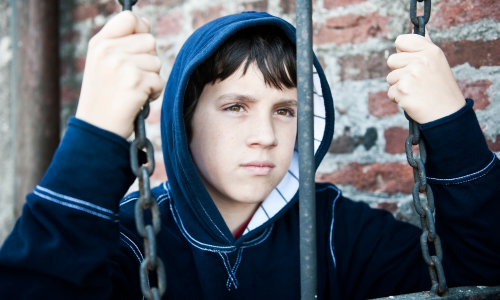Parental Responsibility in Juvenile Crime Cases

Juvenile Criminal Cases and Parental Financial Responsibility
In the realm of juvenile criminal cases, parents often find themselves facing the question of financial responsibility. Understanding the intricate laws and potential liabilities is crucial for parents navigating this challenging terrain. Parental responsibility laws vary by state and can be complex, with the overarching purpose being to encourage parents to supervise their minor children and take accountability for their actions. A pertinent example of this complexity is the variation in laws across different states, where some hold parents responsible for the costs of their child’s delinquency proceedings. For instance, in California, the Parental Liability for Willful Misconduct Law holds parents responsible for civil damages if their child commits a willful crime, showcasing the intricacies of parental responsibility laws.
Parental criminal liability is a significant aspect that parents must grapple with in juvenile criminal cases. Notably, parents can be held criminally liable for their child’s actions, particularly in cases involving access to firearms or computer hacking. The potential consequences for parents encompass a range of punitive measures, including fines, restitution payments, community service, and in severe cases, even jail time. This highlights the substantial impact that parental financial responsibility can have on the lives of parents and underscores the need for a comprehensive understanding of these legal obligations.
When considering parental civil liability, it becomes evident that this extends beyond criminal repercussions. Civil parental liability includes responsibility for various scenarios such as willful property damage, personal injury, motor vehicle accidents, and negligent supervision. This broader scope of liability can have implications on insurance coverage, government benefits, and even child custody arrangements, illustrating the far-reaching consequences of parental financial responsibility. For example, parents may find themselves facing legal challenges related to property damage caused by their minor child, further emphasizing the multifaceted nature of parental civil liability.
Maryland, like many other states, has specific laws addressing parental responsibility for juvenile crimes. These laws cover a wide array of offenses related to internet access, hacking, and firearm access, providing a clear framework for parental financial responsibility in the state. For instance, Maryland’s laws on parental responsibility for juvenile crimes underscore the need for parents to be well-informed about the specific legal requirements they may face in the event of their child’s involvement in criminal activities.
Legal assistance and advice are invaluable resources for parents navigating issues of parental financial responsibility in juvenile criminal cases. Seeking guidance from an attorney experienced in criminal defense is crucial for addressing concerns about parental liability. Additionally, family law attorneys can provide essential assistance in understanding and managing parental responsibility issues, offering parents the support and expertise necessary to navigate these complex legal waters. For instance, Britt Criminal Defense, a legal firm serving the Eastern Shore of Maryland, offers personalized attention to clients facing criminal charges, providing a clear example of the legal support available to parents in such situations.
Juvenile delinquency proceedings constitute a significant aspect of the landscape of parental financial responsibility in the context of juvenile criminal cases. These proceedings typically commence with law enforcement notifying parents of their child’s detention or arrest. The Department of Juvenile Services may impose a range of obligations on the child for misdemeanors, including community service, counseling, or restitution. However, for felonies, the case is forwarded to the State’s Attorney’s Office, potentially leading to juvenile delinquency proceedings, underscoring the gravity of the situation for parents facing the potential financial and legal implications of their child’s actions.
The role of criminal defense attorneys is pivotal in providing support and representation for parents in juvenile delinquency proceedings. These attorneys play a crucial role in safeguarding the rights of the child and advocating for keeping the case in juvenile court for rehabilitation purposes. For example, the legal team at Britt Criminal Defense prioritizes protecting the rights and future of children facing juvenile criminal charges, offering parents a vital source of support and guidance.
Advocacy for keeping cases in juvenile court is an essential component of the legal landscape surrounding parental financial responsibility in juvenile criminal cases. Criminal defense attorneys work diligently to prevent the transfer of cases to adult court for particularly egregious crimes, emphasizing the rehabilitative focus of the juvenile justice system and the importance of skilled legal representation in juvenile criminal cases. This advocacy underlines the vital role that legal professionals play in safeguarding the rights and well-being of both the child and the parents in these challenging circumstances.
Conclusion
Understanding parental responsibility in juvenile criminal cases is a complex and multifaceted issue that can have far-reaching implications for parents and their children. Seeking legal advice and assistance is crucial for parents to navigate the intricate landscape of parental financial responsibility and protect their rights in the event of a juvenile criminal case in Maryland. The legal support and expertise available to parents facing these challenges can provide a sense of guidance and assurance as they navigate the complexities of the juvenile justice system.
